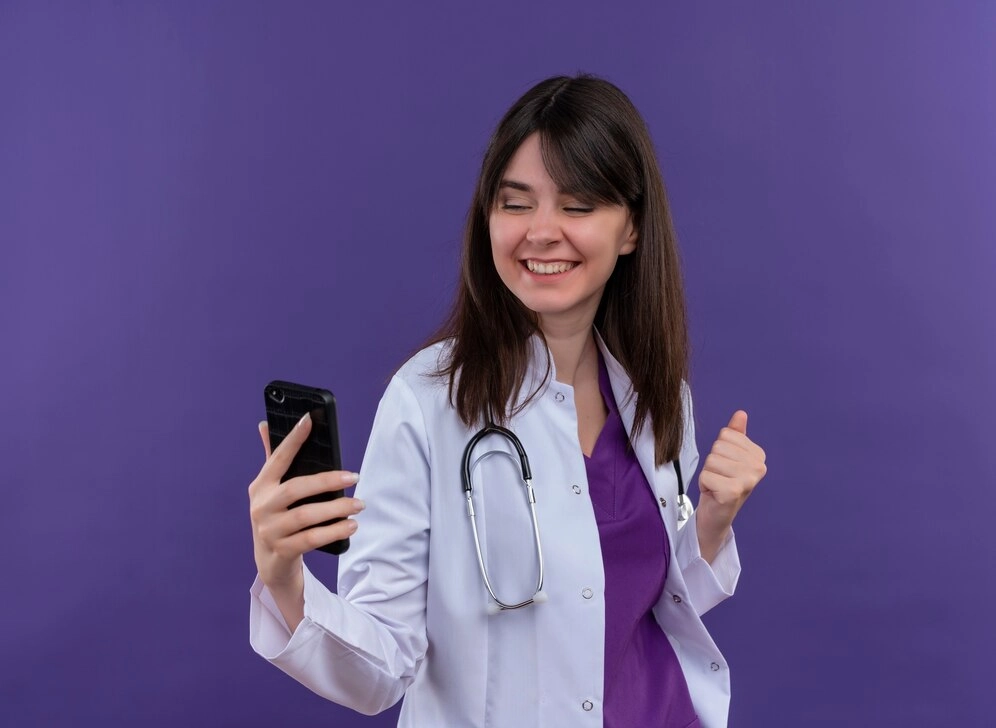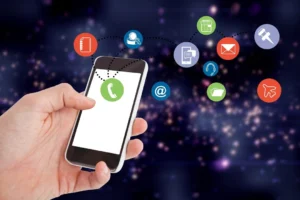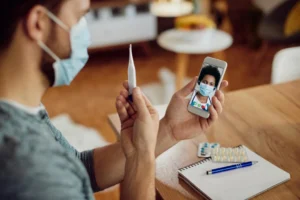Imagine if reaching your healthcare provider was as easy as sending a message to a friend. In an era where communication is essential to patient care, medical institutions are beginning to adopt WhatsApp as a communication tool. From small clinics to large hospitals, WhatsApp is improvising how patients and healthcare professionals interact.
With over 2 billion active users worldwide, WhatsApp’s potential to improve healthcare communication is immense. But how exactly can medical institutions support this tool for better patient care? This article will explore how healthcare providers can use WhatsApp to improve communication, streamline workflows, and improve overall efficiency.
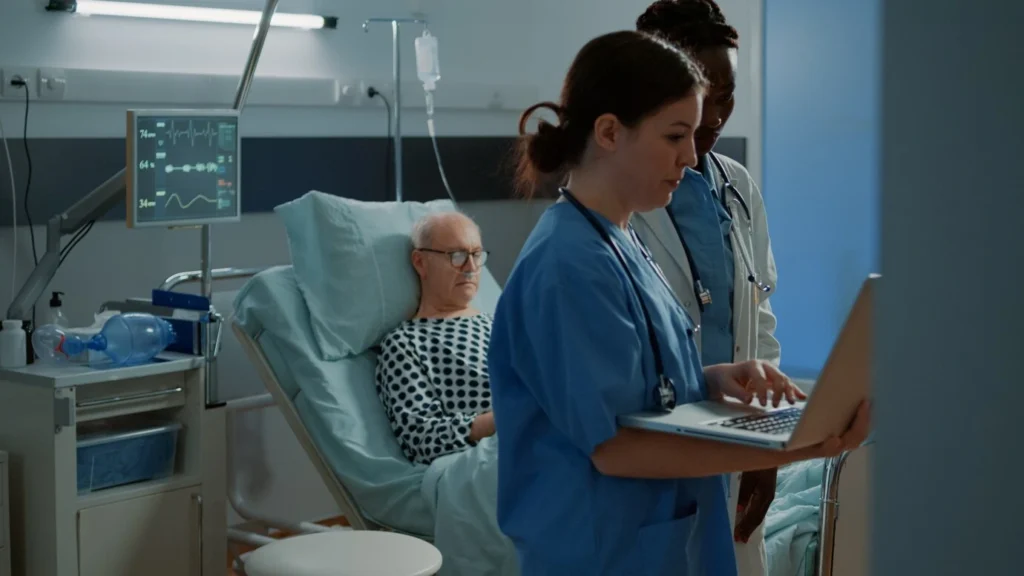
Why Use WhatsApp in Healthcare?
Healthcare is an industry where clear, fast, and secure communication is vital. Traditional methods like phone calls and emails often fail to provide the speed and convenience that today’s patients demand. Here, WhatsApp steps in as a game-changing solution that can bridge the communication gap in healthcare.
Ubiquity and Familiarity
WhatsApp is one of the most widely used messaging platforms globally. Patients already use WhatsApp to communicate with friends and family, so using it to interact with their healthcare providers feels natural. This widespread familiarity eliminates any learning curve, ensuring patients can use the platform without additional training or frustration.
By integrating WhatsApp into your practice, you can offer patients a seamless experience that is easy for them to adopt and use. The simplicity of using a platform they already know and trust will make healthcare more accessible and approachable, especially for older or less tech-savvy individuals.
Instant Communication
The ability to communicate in real-time is crucial in healthcare. A delayed response could result in missed medication doses, unmanaged symptoms, or even more serious complications. With WhatsApp, patients can instantly interact with their providers, and healthcare staff can respond quickly, avoiding the delays associated with traditional communication methods.
Patients can ask for updates on their lab results, follow up on prescriptions, or clarify post-consultation instructions without having to wait for emails or long phone calls. Real-time conversations also improve the overall patient experience by providing quick answers and reassurance during times of uncertainty.
Secure Messaging
In the healthcare industry, protecting patient confidentiality is of paramount importance. WhatsApp’s end-to-end encryption ensures that messages between patients and providers are secure, meaning only the sender and recipient can access the conversation. This makes WhatsApp an ideal tool for sharing sensitive health information such as test results, diagnoses, and treatment plans.
Using encrypted platforms like WhatsApp allows healthcare providers to maintain compliance with data protection regulations, such as HIPAA in the United States and GDPR in Europe, while still offering a convenient communication channel. For patients, knowing their personal health information is protected, fosters trust and encourages open communication.
Key Use Cases of WhatsApp for Healthcare
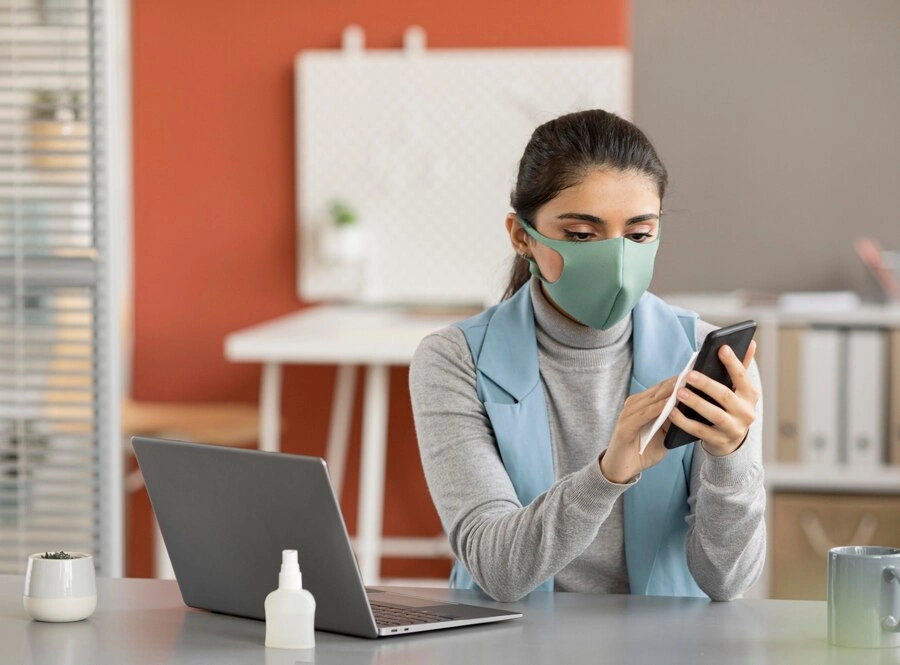
There are numerous ways healthcare providers can harness WhatsApp to improve patient care and streamline operations. Here are some practical applications that can have a significant impact on healthcare services.
Appointment Scheduling and Reminders
One of the most common reasons for patient-provider communication is scheduling appointments. WhatsApp simplifies this process by allowing patients to book their appointments via text, saving time for both parties. In addition, automated reminders can be sent through the app to ensure patients remember their appointments, reducing no-shows and cancellations.
Patients can receive personalized reminders ahead of their visits, which are particularly helpful for those with busy schedules. By eliminating the need for phone calls, healthcare providers can free up administrative staff to focus on more critical tasks.
Example: A dental clinic uses WhatsApp to send out automatic reminders to patients 24 hours before their scheduled appointments, significantly reducing last-minute cancellations.
Telemedicine and Virtual Consultations
The rise of telemedicine has made healthcare more accessible, particularly during the pandemic WhatsApp offers a straightforward way to conduct virtual consultations through voice or video calls. Patients who do not need an in-person visit can easily have remote checkups, follow-up appointments, or ask questions from the comfort of their homes.
With WhatsApp, telemedicine becomes more user-friendly for patients who may be intimidated by more complex healthcare portals. Remote consultations not only save time but also improve access to care for individuals living in rural areas or those with mobility issues.
If you’ve ever had a virtual consultation, what challenges did you face? How could using WhatsApp for telemedicine improve your experience?
Sharing Medical Records and Test Results
One of the key benefits of WhatsApp is its ability to securely share medical records, prescriptions, and test results. Patients can receive important documents quickly and review them on their smartphones. This eliminates the need for a return trip to the clinic just to pick up a hard copy, making the entire process more efficient.
Healthcare providers can also use WhatsApp to send follow-up instructions or care plans, ensuring patients have the resources they need after leaving the office. This level of convenience empowers patients to take control of their healthcare while improving treatment adherence.
A clinic sends lab results to patients via WhatsApp along with a brief explanation from the physician, allowing patients to understand their results without the need for another appointment.
Health Education and Preventive Care
WhatsApp can be a valuable tool for providing health education to patients. Clinics and hospitals can send regular updates, reminders about vaccinations, and tips on managing chronic conditions such as diabetes or high blood pressure. By promoting preventive care, healthcare providers can help patients stay informed and proactive about their health.
For example, during flu season, healthcare providers can send out reminders to patients to get their flu shot, along with information on why it’s important. This proactive approach encourages patients to engage with their healthcare regularly and improves long-term health outcomes.
WhatsApp Business API: A Game-Changer for Medical Institutes
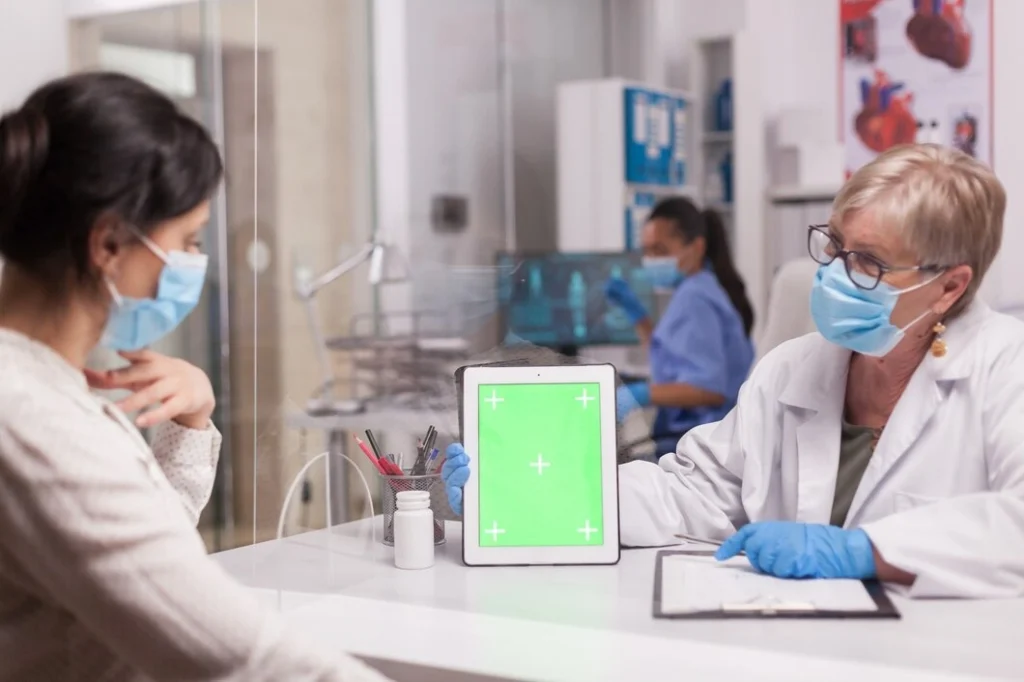
For larger medical institutions, the WhatsApp Business API offers more advanced capabilities that can significantly improve communication, automation, and patient management. The API allows healthcare organizations to manage high volumes of communication efficiently and integrate WhatsApp with other systems such as Customer Relationship Management (CRM) software.
Automating Patient Interactions
By using the WhatsApp Business API, healthcare providers can automate many of their routine communications. Appointment confirmations, reminders, prescription refill requests, and follow-up check-ins can all be handled through automation, freeing up staff to focus on more critical tasks.
Automated responses ensure that patients receive timely information, even outside of regular office hours. For instance, if a patient messages their healthcare provider about an upcoming appointment, they can receive an immediate automated confirmation and reminder. This level of responsiveness improves the patient experience and reduces administrative overhead.
Integration with Existing Systems
Another key feature of the WhatsApp Business API is its ability to integrate seamlessly with existing systems such as appointment scheduling software, electronic medical records (EMRs), and CRM platforms. This integration ensures that all communication is synchronized and allows healthcare providers to manage patient interactions, data, and records efficiently.
With system integration, healthcare providers can maintain a comprehensive overview of patient communication, reducing the likelihood of missed messages or miscommunication. This not only improves internal workflows but also ensures a smoother patient experience.
How could integrating WhatsApp with your current patient management system streamline your daily operations?
WhatsApp Chatbots for Healthcare

WhatsApp chatbots are becoming an essential tool for healthcare providers looking to automate routine interactions and reduce the burden on their staff. Chatbots can handle a wide range of tasks, from booking appointments to answering FAQs and providing initial triage for patients.
Automating Routine Tasks
Chatbots can quickly handle repetitive tasks such as booking appointments, sending reminders, answering basic medical questions, and collecting patient feedback. Patients can interact with chatbots 24/7, ensuring they receive the information they need, even when the clinic is closed.
By automating these interactions, chatbots reduce the need for human intervention in routine queries, allowing healthcare staff to focus on more complex issues. Patients also benefit from instant responses without having to wait for office hours or communicate through complicated phone menus.
Symptom Checking and Triage
Chatbots can also assist with symptom checking and triage, helping patients determine whether they need immediate medical attention. By asking questions about symptoms and providing basic medical advice, chatbots can guide patients on whether to book an appointment, seek urgent care, or manage symptoms at home.
If a patient requires further assistance, the chatbot can transfer the conversation to a healthcare professional. This automated triage system ensures patients receive the right level of care without overwhelming medical staff with minor queries.
Mental Health Support
Mental health is another area where chatbots can provide critical assistance. Through WhatsApp, chatbots can guide patients through stress management techniques, provide reminders for therapy sessions, and offer access to mental health resources. Patients dealing with anxiety or depression can receive immediate support without needing to make a phone call or schedule a formal appointment.
Chatbots offer a discreet and accessible way for patients to seek mental health support, making it easier for them to manage their well-being on their terms.
Data Privacy and Security in Healthcare

When using WhatsApp for healthcare, protecting patient data is critical. WhatsApp’s end-to-end encryption ensures that all messages are protected and accessible only to the sender and recipient. However, healthcare providers must still comply with local and international data protection laws when communicating sensitive health information.
Compliance with Regulations
WhatsApp meets international data privacy regulations such as HIPAA in the U.S. and GDPR in the EU. However, healthcare providers must still obtain explicit patient consent before using WhatsApp to share medical information. Compliance with these regulations ensures that providers maintain trust and avoid legal repercussions.
Healthcare organizations should also establish clear guidelines on how to store and manage patient data securely. Using third-party solutions to archive WhatsApp messages can ensure compliance with record-keeping regulations while protecting patient privacy.
Data Storage and Record Keeping
While WhatsApp provides excellent encryption for real-time conversations, it does not offer built-in tools for long-term data storage. Healthcare providers must implement third-party archiving systems to store patient communications securely and ensure they are accessible when needed for future reference.
Choosing the right data storage solution ensures that all communications are properly archived, meeting regulatory requirements and protecting patient data This allows healthcare providers to benefit from WhatsApp’s real-time communication while maintaining compliance with medical record-keeping standards.
Challenges of Using WhatsApp in Healthcare
Despite its many benefits, there are challenges associated with using WhatsApp in a healthcare setting. Providers must solve these challenges carefully to fully support the platform’s potential.
Record Keeping and Data Storage
As previously mentioned, WhatsApp lacks built-in tools for long-term data archiving. Healthcare providers need to implement third-party solutions that comply with medical record-keeping standards. Without proper data storage, important patient communications could be lost, leading to compliance issues.
Training and Adoption
Introducing WhatsApp into a healthcare environment requires training for both patients and staff. Healthcare professionals need to be comfortable using WhatsApp to communicate with patients securely, while patients need to be aware of how to use the app to interact with their providers. Proper training and clear guidelines will ensure a smooth adoption process.
Data Privacy and Legal Considerations
While WhatsApp provides end-to-end encryption, the legal landscape surrounding data privacy in healthcare is complex. Different countries have varying regulations, such as HIPAA in the U.S. and GDPR in the EU, and failure to comply with these laws could lead to severe penalties. Healthcare providers must obtain patient consent before sharing any personal health information via WhatsApp, and additional measures may be necessary to meet data privacy requirements, such as anonymizing sensitive information.
Closing Insights:

WhatsApp offers a simple yet powerful solution for improving healthcare communication. From automating appointment reminders to offering secure telemedicine services, WhatsApp can transform the way medical institutions interact with patients. With its user-friendly interface and robust encryption, WhatsApp has the potential to make healthcare more accessible, efficient, and secure.
As healthcare continues to evolve, platforms like WhatsApp will become essential tools for ensuring that patients receive timely, personalized care. Are you ready to see how WhatsApp can revolutionize your healthcare practice?

